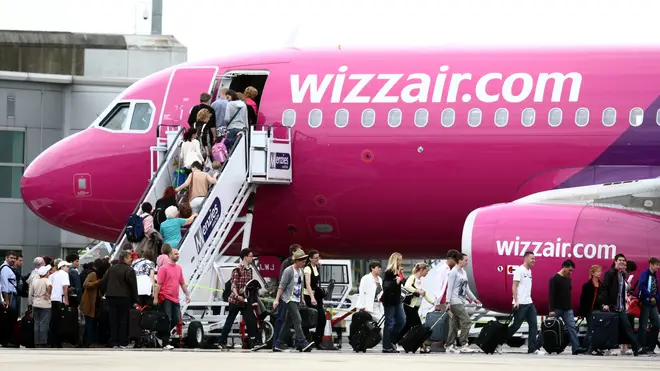
Nick Abbot 10pm - 1am
26 January 2022, 12:24

The airline more than tripled the number of passengers it carried in the three months to the end of December
Budget airline Wizz Air believes its planes will be nearly full this summer after several months of problems caused by Omicron.
The company said the variant has caused headwinds, but it is banking on a recovery later this year.
“Despite the short-term headwinds, we are cautiously optimistic for a continued recovery into spring and near-full utilisation from summer onwards,” chief executive Jozsef Varadi said in a statement to shareholders.
The end of last year showed a strong recovery from the malaise of 2020.
In the last three months Wizz carried 7.7 million passengers, over three times more than the same period a year earlier.
The boom came despite the impact of Omicron in December.
Pre-tax loss hit 266 million euros (£222 million), more than twice the loss in the same quarter in 2020.
Revenue rose 173% to 408 million euros (£340 million).
“The emergence of the Omicron variant and renewed travel restrictions impacted our trading performance late in the quarter and we expect demand in January, February and part of March to be impacted by ongoing travel uncertainty,” Mr Varadi said.
Therefore operating loss is expected to be higher in the three months to the end of March than it was in the previous three-month period.
Mr Varadi said: “We continued our investment in recruitment and training, bringing in more than 1,500 talented people since the start of last summer.
“In January 2022 we counted already 5,550 employees, surpassing our pre-pandemic number of colleagues, in support of our growth ambitions.
“Our fleet also continued to grow and we ended the quarter with 150 aircraft.”
Shares in the company had risen around 4.4% at midday on Wednesday.
Covid has proven tough for all airlines, as Governments put restrictions on both local and international travel.
While Wizz Air’s latest data suggests a rebound from the depths of 2020, it still carried more than two million fewer passengers in the last three months of last year than it did in 2019, before the pandemic.